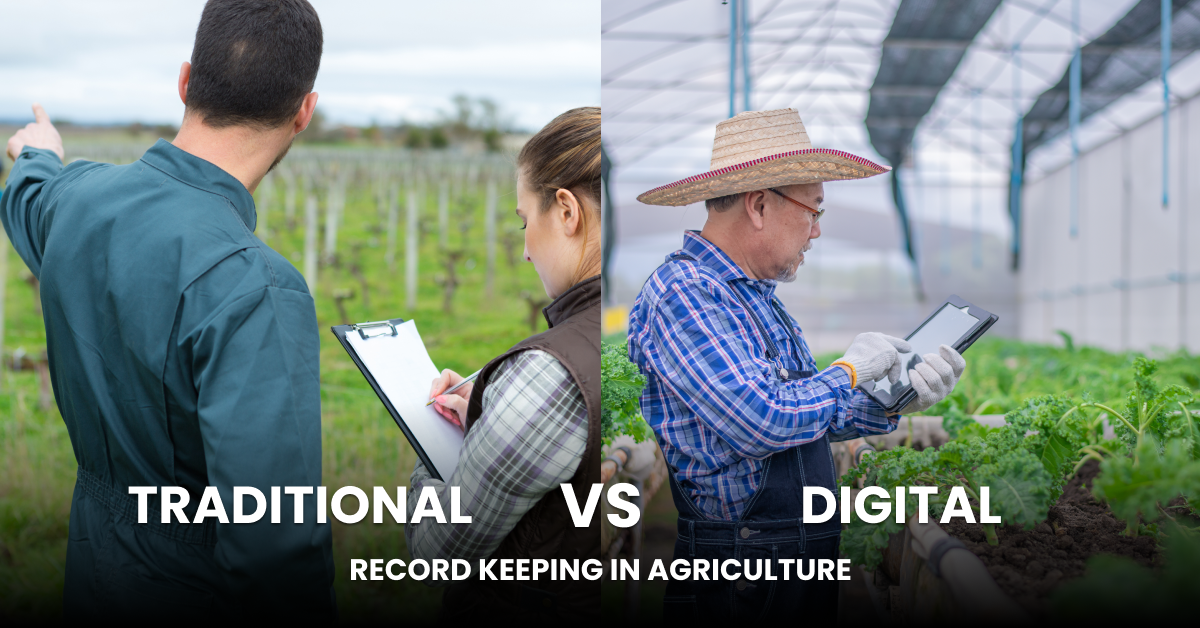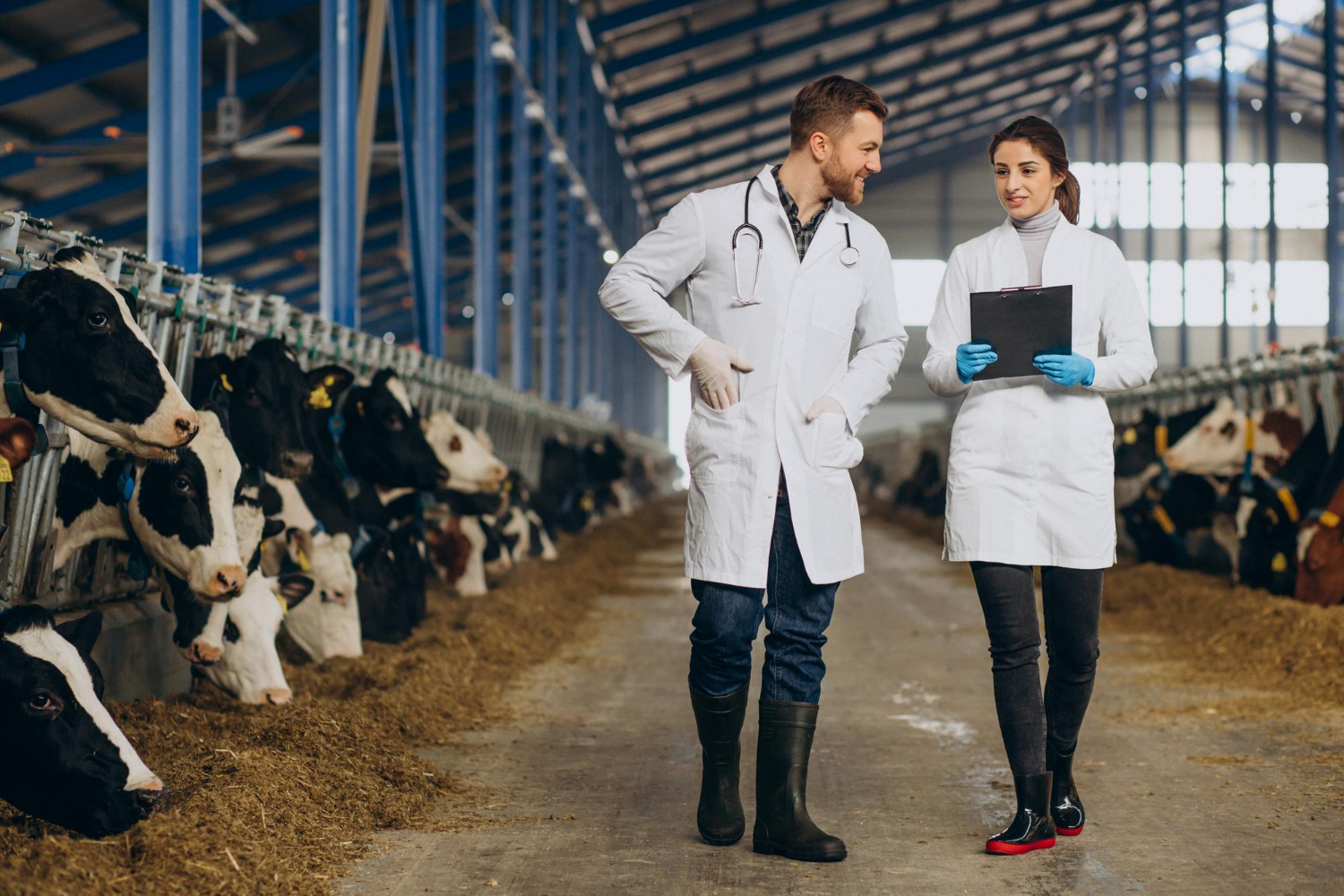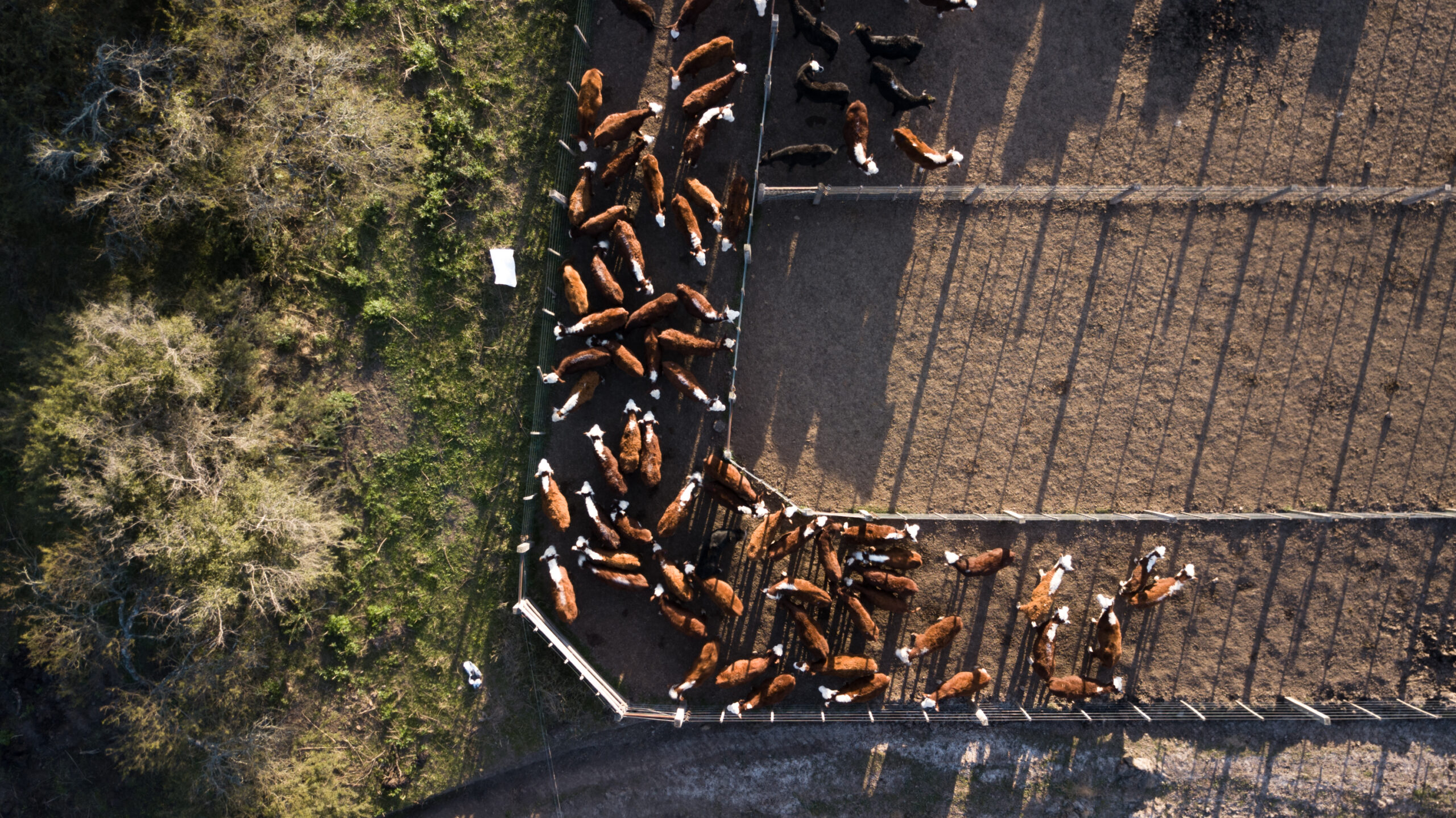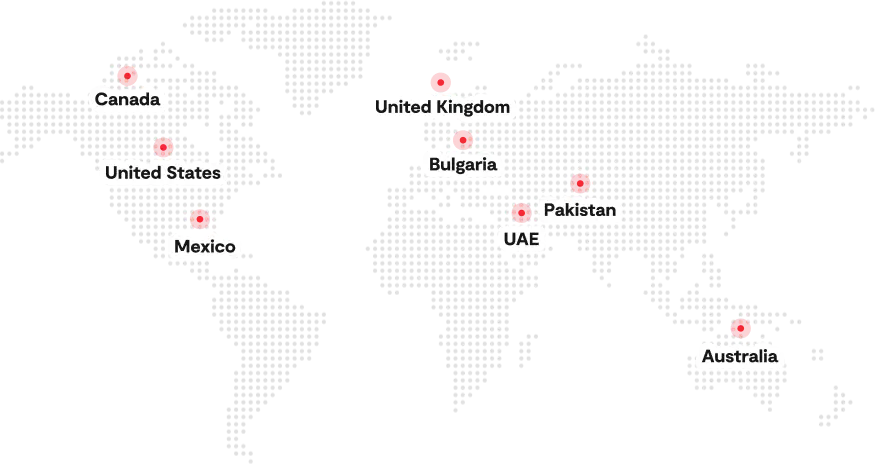Accurate record keeping underpins every successful farm. Whether you’re tracking field operations, livestock health, or financial transactions, the way you capture and manage data ultimately shapes productivity and profitability. Understanding why record keeping is crucial for farm success helps contextualize the shift from traditional to digital methods.
Historically, farmers have relied on notebooks, ledgers, and filing cabinets. While this method is familiar and low‑cost, it often becomes a bottleneck when you need timely insights or have to prove compliance.
Today, digital record-keeping using software and cloud‑based tools offers an efficient alternative. In this guide, we’ll compare traditional and digital approaches, explain why electronic record management is becoming essential in agriculture, and show you how to choose a solution that fits your operation.
Understanding Traditional Record‑Keeping and the Need of Digitization
Traditional farm records are usually paper‑based: logbooks, binders, paper invoices, and receipts. Some farms organize data neatly in spreadsheets, while others keep a box of receipts and handwritten notes. Advantages of traditional methods include simplicity, minimal up‑front cost, and independence from internet connectivity or software.
However, paper records have serious drawbacks. They are prone to loss or damage from fire, water, or pests. Over time, they accumulate in file cabinets, requiring physical storage space. Research shows that the average office worker uses 10,000 sheets of paper per year and that over 40 % of wood pulp goes toward paper production. The cost of using paper can run 13 – 31 times the purchase price when you factor in printing, storage, and disposal. This wastefulness highlights not only financial costs but also environmental consequences.
Another issue is accessibility: retrieving a specific record might involve sifting through stacks of files. Collaborating with advisors or auditors often requires making copies or scanning documents. While pen‑and‑paper methods may feel comfortable, they hinder efficiency, sustainability, and scalability as farms grow or face tighter regulatory scrutiny.
What are Digital and Electronic Records?
Before diving into digital record‑keeping systems, it’s essential to understand the terminology. Digital records refer to documents that are created or stored in a digital format, such as word processing files, spreadsheets, photos, scanned receipts, and PDFs. Electronic records are system‑generated data such as database entries, emails, or sensor outputs. Moreover, digital records are often static and portable, while electronic records are dynamic and may require specific software to view.
The Pacific Regional Branch of the International Council on Archives (PARBICA) lists examples of digital records relevant to farming: Microsoft Word documents, Excel spreadsheets, emails, websites, digital images, video recordings, and databases. All these records share a common characteristic, metadata that describes when a file was created, who created it, its format, and how it should be preserved.

In farm management, metadata might include the field location, crop variety, equipment used, and date of entry. Without proper metadata, digital files can become just as disorganized as paper documents. Modern electronic records management systems automatically capture metadata, enabling quick search and retrieval. Understanding these definitions helps farmers evaluate software features and regulatory requirements, since some laws distinguish between digital and electronic records.
Digital Record‑Keeping in Agriculture
Digital record‑keeping means using software, mobile apps, or cloud platforms to capture, store, and analyze farm data. These tools allow you to enter data directly on your smartphone or tablet in the field, attach photos, generate reports, and share information with advisors.
An electronic records management system (ERM) manages records from creation to disposal. It controls who can access data, maintains audit trails, and enforces retention schedules. ERM platforms provide encryption and audit logs to protect sensitive information, while also offering flexible identity‑based permissions. In agriculture, it translates into protecting confidential financial records and personal data for laborers while still granting veterinarians or agronomists access to relevant information.

Digital record‑keeping tools integrate with sensors, GPS equipment, and drones to capture data automatically. For instance, many planters and combine harvesters export yield maps or seeding data to cloud dashboards. The USDA‑funded FARMDATA project demonstrated how a smartphone‑compatible web app improved record capture on an organic farm: staff captured over 90% of plantings and harvests and 100 % of cover crop seedings, sprays, and compost applications in a searchable digital format. Such examples illustrate that digital platforms are not just high‑tech gadgets but practical tools designed to simplify everyday farm tasks.
Benefits of Digital Record‑Keeping
Switching from paper to digital records brings a host of benefits. Here we break them down into themes, each addressing common pain points faced by farmers.
Efficiency & Time Savings
One of the most significant advantages of digital systems is faster access to information. The McKinsey Global Institute’s research on knowledge work found that searchable digital records can reduce the time employees spend looking for information by up to 35%. Applied to farming, it means you can instantly pull up spray logs, harvest records, or veterinary treatments without combing through folders.
Digital record-keeping tools pre‑load field sizes and seeding rates, allowing quick decisions during busy windows. Digital record‑keeping also streamlines reporting when records are tied to GIS coordinates and timestamps, you can analyze trends across seasons and respond promptly to issues.
Cost Savings
Paper isn’t cheap when you account for printing, storage, and labor. Farms printing invoices, receipts, and field logs can incur similar hidden costs. Digital platforms eliminate or significantly reduce paper purchases, printing costs, and physical storage. Many farm management apps are subscription‑based, so you pay only for the level of functionality you need. Over time, the savings on paper supplies, ink, filing cabinets, and labor can outweigh the initial investment in software and devices.
Space & Environmental Benefits
Paper records require physical storage and are susceptible to moisture, fire, or rodent damage. Going digital frees up office space for more productive uses. Environmentally, less paper means fewer trees harvested and lower water consumption. One ton of virgin paper uses 24 trees, and the United States, home to less than 5% of the world’s population, consumes 30 % of the world’s paper. By adopting digital record‑keeping, farms contribute to conservation efforts and reduce their carbon footprint. Additionally, cloud storage reduces the need for on‑site hardware, and many providers use energy‑efficient data centers.
Enhanced Data Security
Security is often a concern when transitioning to digital. Modern ERM systems address this with encryption, access controls, and audit trails. Moreover, electronic records platforms store data in encrypted form and maintain logs of who accessed or altered a record. They also allow administrators to set permissions so that employees see only the data relevant to their roles.
In agriculture, it protects sensitive information such as financial records or proprietary crop data while allowing advisors or inspectors limited access. Cloud backups safeguard records from disasters like fire or flood risks that can wipe out paper archives overnight.
Regulatory Compliance & Record Retention
Agricultural operations must comply with various regulations, including food safety, organic certification, labor laws, and data privacy. ERM systems support compliance by enforcing retention schedules and generating chain‑of‑custody reports.
Meanwhile, industry‑specific compliance capabilities, flexible access management, and record retention scheduling are key features of enterprise‑level systems. Digital platforms can automatically remind you when to archive or delete records, minimizing the risk of penalties for retaining data too long or losing evidence during audits.
Better Decision‑Making & Collaboration
Traditional records are often scattered across notebooks or spreadsheets, making it hard to see the “big picture.” Digital systems centralize data and present it in dashboards or reports. Effective data visualization in agriculture transforms raw farm data into actionable insights, helping you identify patterns and opportunities at a glance. It allows farmers to analyze profitability by crop, evaluate equipment performance, or monitor livestock health. Because records are shareable via the cloud, consultants, agronomists, and veterinarians can collaborate remotely.
Furthermore, improved collaboration and communication through digital tools can raise the productivity of knowledge workers by 20–25%. For farms, this translates into quicker problem‑solving and better coordination among family members, hired labor, and service providers. Additionally, digital records enable data‑driven decision‑making using yield maps, soil tests, and weather data to adjust planting densities or fertilizer rates, leading to higher yields and profitability.
Challenges & Transition Considerations for Digital Record-keeping in Agriculture
While digital record‑keeping delivers many benefits, the transition isn’t always easy.
Upfront cost: Buying software licenses, tablets or smartphones, and sometimes subscription fees, can deter farms with slim margins. However, many solutions offer tiered pricing, and cloud‑based systems eliminate the need for expensive servers.
Technical skills and training: Farmers accustomed to paper may feel overwhelmed by new interfaces or worry about data loss. To overcome this, schedule training sessions for farm staff, start with user‑friendly apps, and engage vendor support. Many farmers hesitate to adopt digital systems due to common misconceptions about farm record keeping software, such as concerns about complexity, cost, or data security but these myths often don’t reflect modern solutions.
Data migration: Transferring existing paper records into a digital format requires time and planning. Third‑party digitization services or scanning apps can help. Even farms that previously struggled with incomplete paper records were able to digitize most of their history within a single season. It’s wise to prioritize critical records and gradually convert less urgent information.
Connectivity: Many apps operate offline and sync when an internet connection becomes available. Evaluate whether your chosen solution works in areas with poor connectivity.
Change management: Introduce digital tools gradually, highlight quick wins, and involve the whole team in the process. Seek input from accountants, veterinarians, and agronomists when selecting a system so it meets everyone’s needs. By anticipating these challenges and planning accordingly, you can ensure a smoother transition.
How to Choose a Digital Record‑Keeping System
Selecting the right software for digital record keeping can feel daunting. Before evaluating specific platforms, it’s helpful to understand essential farm record-keeping best practices that apply regardless of whether you use paper or digital systems. As a result, you’ll be better positioned to choose a solution that meets your farm’s size, enterprise mix, and compliance requirements.
Security & Compliance
Look for encryption, two‑factor authentication, and audit trails. Ensure the system supports industry regulations like organic certification, animal welfare standards, and data privacy laws. Some systems allow you to set retention schedules and generate compliance reports.
Access Controls & User Management
Choose a platform that offers role‑based permissions so employees only see what they need. It protects sensitive financial or personnel data while allowing consultants access to agronomic records.
Integration & Scalability
Your software should integrate with equipment (e.g., yield monitors, GPS) and other tools such as accounting or weather apps. Meanwhile, evaluating storage methods, legal requirements, and responsible parties helps ensure the system scales with your farm.
Ease of Use & Support
A user‑friendly interface with mobile access encourages adoption. Check whether the vendor offers training, customer support, and updates. Consider offline functionality if your farm has patchy internet.
Reporting & Analytics
Look for customizable dashboards, export options, and the ability to generate regulatory reports. Systems that provide real‑time insights into yields, costs, and inventory can improve decision‑making.
Cost & Value
Compare subscription fees, hardware requirements, and potential savings. Remember that paper costs and inefficiencies may outweigh software expenses over time.
Vendor Reputation & Data Ownership
Investigate how vendors handle data ownership, privacy, and portability. Some systems allow you to export data easily; others may lock you into proprietary formats. Choose a provider with a track record in agriculture and clear terms of service.
Examples of Digital Record Keeping in Agriculture
Digital record‑keeping isn’t theoretical; it’s already transforming farms worldwide. Here are a few practical examples:
- Livestock health and traceability: Many dairies and beef operations use computerized herd management systems to track vaccinations, treatments, and breeding. If you’re managing livestock, following proven strategies for digital cattle record keeping can streamline your transition from paper logs to comprehensive digital tracking. These methods simplify compliance with animal‑health regulations and improve herd management.
- Organic compliance: Organic certification requires meticulous records of seed sources, inputs, and harvests. Digital records facilitated in‑season assessments and inspections, saving managers time and reducing errors.
- Crop production and equipment: Yield monitors and GPS‑enabled tractors automatically log seeding rates and harvest yields. Integrating this data with a record‑keeping system helps identify yield variability and fine‑tune fertilizer or irrigation strategies.
- Financial management: Tools for crop management allows farmers to link financial transactions with production data, making it easier to calculate profitability by crop or enterprise and to prepare for audits.
These examples demonstrate that digital systems serve different farm types from small organic vegetable operations to large dairy enterprises and provide measurable benefits in compliance, analysis, and efficiency.
Folio3 AgTech’s Record‑Keeping Solution
Folio3 AgTech offers a cloud‑based farm record‑keeping solution designed to streamline data capture and analytics across crop and livestock enterprises. Key features include:
- Mobile & Offline Data Entry: Capture field activities, livestock treatments, and inventory changes using a smartphone or tablet. Data syncs automatically when connectivity is available.
- Automated Data Integration: Import sensor readings, GPS data, and equipment logs directly into the platform. Integration with existing farm management systems ensures a unified data repository.
- Custom Dashboards & Reports: Generate real‑time reports on yields, inputs, costs, and compliance metrics. Customizable dashboards help you visualize trends and make informed decisions.
- Secure Cloud Storage: Records are encrypted and backed up, with role‑based permissions to protect sensitive information.
- Regulatory & Audit Support: Built‑in retention schedules and export options simplify organic certification, food‑safety audits, and other regulatory requirements.
By focusing on usability and integration, Folio3’s system aims to reduce manual data entry, improve accuracy, and give farmers actionable insights. Adopting such a solution after you understand the broader landscape can help you transition smoothly from paper to digital record‑keeping.
Conclusion & Future Outlook
Record keeping is not just about compliance; it’s a pathway to smarter, more sustainable agriculture. While traditional paper methods may still work for small tasks, they limit your ability to analyze data, collaborate, and meet evolving regulatory demands. Digital record‑keeping systems provide efficiency, cost savings, environmental benefits, security, and better decision‑making. Adoption rates among forward‑thinking farmers are rising, particularly where regulatory compliance is mandatory. Looking ahead, emerging technologies like IoT sensors, satellite imagery, and blockchain will further enhance data quality and traceability. As you consider your next steps, evaluate your farm’s needs, start with manageable digital tools, and plan for the future. The sooner you invest in an organized digital record‑keeping system, the sooner you’ll reap its rewards.
FAQs
How is Digital Record‑keeping Different from Electronic Records Management?
Digital records include scanned or born‑digital documents like PDFs, photos, and spreadsheets, while electronic records refer to system-generated data (emails, databases). Electronic records management refers to controlling both types throughout their lifecycle, including storage, access ,and disposal.
What are the Main Benefits of Switching from Paper to Digital Farm Records?
Digital systems save time and cut costs by automating data entry and eliminating paper supplies. They enhance security through encryption and backups, improve accessibility, and support remote collaboration. Environmental benefits include reducing tree harvesting and water usage.
How Much Does a Digital Record‑keeping System Cost?
Costs vary based on features and farm size. Expect initial expenses for software licenses, devices, and training, but long‑term savings from reduced paper use, labor, and storage often outweigh the investment. Cloud‑based systems offer scalable subscription plans that can grow with your operation.
Are Digital Record‑keeping Systems Suitable for Small Farms?
Yes. Cloud‑based record‑keeping software scales to any operation size and often offers tiered pricing. Even small farms benefit from improved organization, real‑time access, and better decision‑making.
What Should I Look for in a Digital Record‑keeping Solution?
Prioritize security (encryption, audit trails), access management, compliance features, record‑retention options, integration with existing tools, and ease of use. Evaluate vendor support, training resources, and scalability to ensure the system can grow with your farm.





